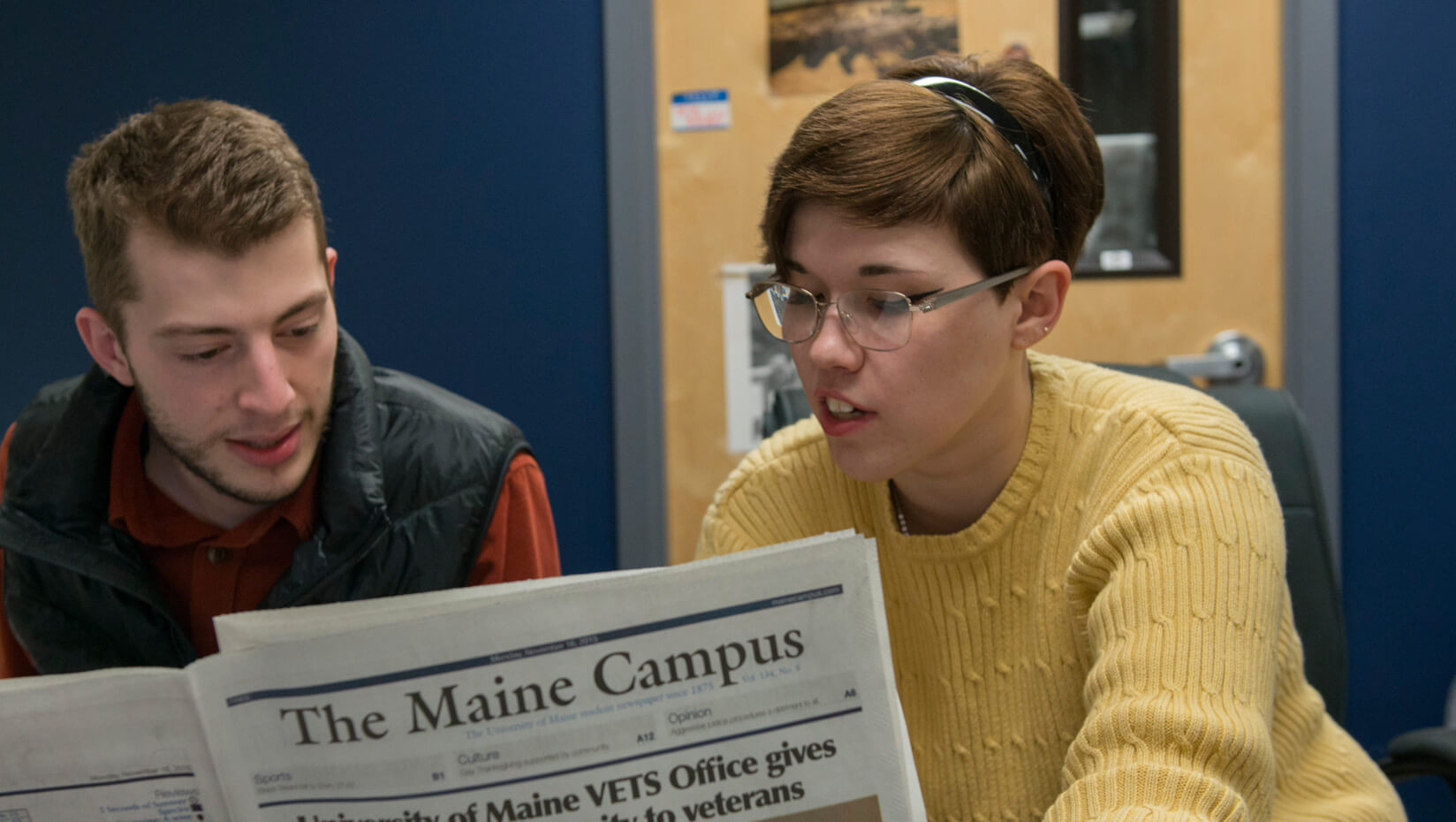
Allyson Eslin: Triple major aiming for public office
Transcript
Allyson Eslin:
My name is Allyson Eslin, I’m an economics, psychology and political science major at the University of Maine. My experiences both in and out of the classroom have been pretty busy, I suppose is the best way to describe it.
I believe I was officially a psychology major when I gained admission. I decided I wanted to get into the political sphere, so I switched my major to political science. I thought, “Why not challenge myself, and why not expand my horizons?”
One of the things that I think our legislators lack nowadays is experience in lots of different fields. I think they focus on business and law, which are important and something I want to look at too, but I also wanted experience in economics, which is incredibly important for budgetary reasons, when we’re thinking about how we spend our tax dollars.
I wanted experience in psychology because I think it’s incredibly important to be able to relate to people, and to understand where people are coming from.
One of the big draws of UMaine was that it had that. It had depth, but it also had various options that a lot of places didn’t have. You can get the basics pretty much anywhere, but having the broadness, and then in that broadness, the depth, was what was really helpful.
I’ve also worked at the campus paper, as the opinion editor. I was initially a columnist, so I’ve expanded my horizons. Part of it was challenge, but part of it was hoping that when I do eventually enter that public sphere, I can be the most effective legislator and the most effective analyst. I want to work, maybe in intelligence that I possibly could be.
Caroline Noblet:
That’s great.
Allyson Eslin:
So that’s all looking good.
I’ve also had the opportunity to do research with Dr. Caroline Noblet, who is an assistant professor at the School of Economics, focusing in environmental and behavioral economics.
Working with her has been an experience that led to many other fortunate things to befall me. Once I started working with her, I gained the skills required to go after some of these more competitive research scholarships.
I am currently a Margaret Chase Public Affairs Scholar. With that, I’m doing research into critical attitudes and the factors that affect those. I don’t know if I can quantify all the ways it’s been helpful to me, whether it be as a student, as an individual; she’s been an amazing mentor to me.
I was offered an internship in Washington, D.C., through the Peter Madigan Congressional Internship, offered on the university campus. It partners with Maine delegates. They work with a senator or congressperson in Washington, D.C., for a semester, for internship credit.
That was one of those things that came to fruition as a piece of all the other work I do. I’m a little speechless about it, to be honest. It’s one of those things that’s very humbling.
I’m also having fun. I have a lot of really great friends on campus, and though I work hard, when you work hard, you surround yourself with others who work hard.
We spend a lot of time together studying, hanging out around campus, learning, getting things done — budgeting, that’s a thing that we do together. You can have fun and still work hard.
I’ve definitely been trying to get as much as I can out of the college experience. Sometimes students can feel overwhelmed. Sometimes students don’t take advantage of all the amazing opportunities that are around them; internships, work experience, mentor-mentee relationships, it’s all there.
It’s about motivating yourself to get there. I don’t think there’s ever going to be a time in my life when there are so many people willing to help me; willing to help me get ahead, and willing to help me learn, willing to help along in my pursuit. I want to take advantage of that.
